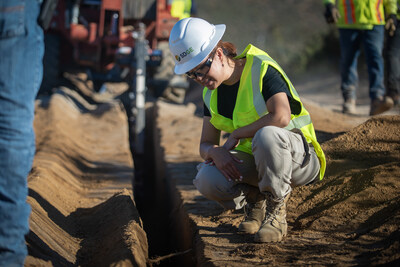
Homeowners wanting to rent out a basement or have their aging mom and dad move in might soon be better able to afford renovation costs. Beginning Jan. 15, to cover costs of secondary suites such as basement or garage apartments, laneway homes or main-floor additions.
The new rules allow homeowners to access up to 90 per cent of their property value, including the estimated value after adding a suite or suites, toward renovations up to a maximum value of $2 million. Previously, homeowners could borrow up to 80 per cent of their home’s value. But experts warn to be careful before jumping in.
Homeowner or a close relative must already occupy one of the current units, and the additional unit(s) must not be used for short-term rentals such as Airbnb. New units must be self-contained — basement suites with separate entrances and laneway homes — and meet municipal zoning laws. Up to four dwelling units, including the existing property.
The combined value of the renovated unit and eligible residential property must be less than $2 million. Up to 90 per cent of the property value, including the value added by the secondary suite(s) and other outstanding loans secured by the property. Up to 30 years The upside of the new rules is that it makes it easier for intergenerational families to live together, says Jason Heath, managing director at Objective Financial Partners.
The downside is that it could encourage Canadians to put a disproportionate amount of their savings into real estate. “I worry a little bit that this could cause people, who should be contributing to their RRSP account or their TFSA account or opening an RESP for their kids, to dump their savings into real estate.” Already, real estate represents more than half of all household wealth in Canada, while Statistics Canada for about 75 per cent of household debt.
Ian Calvert, vice-president and principal at Toronto-based HighView Financial Group, says borrowers should consider how refinancing fits into their financial plan and warns that renovation costs can quickly exceed your budget. The costs of a full basement renovation depend on several factors, such as size, complexity and material quality. The average finished basement costs range from $45 to $95 a square foot, according to Toronto-based renovation firm Capable Group.
This can add up to between $45,000 and $95,000 for a 1,000-square-foot basement. “Big renovations are time-consuming, expensive and messy,” says Calvert. “Things can get uncovered — a lot of stuff can come up in these projects and they can always take longer than you think.
” Ross Taylor, founder at Ross Taylor Mortgages in the GTA, recommends borrowers taking on large-scale renovations have “a strong financial foundation — meaning at least 20 per cent equity in your home, though I’d even argue for 35 per cent. Just because you can borrow that much doesn’t mean you should.” And if your plan is to use your new unit for rental income, Calvert suggests leaving yourself a buffer so that you aren’t reliant on tenants to break even.
“When it’s pulled off correctly, it works out well,” says Calvert. “But I don’t think you want to find yourself in a scenario where you do this addition, but can’t afford the unit if you don’t have a tenant move in the next month.”.













